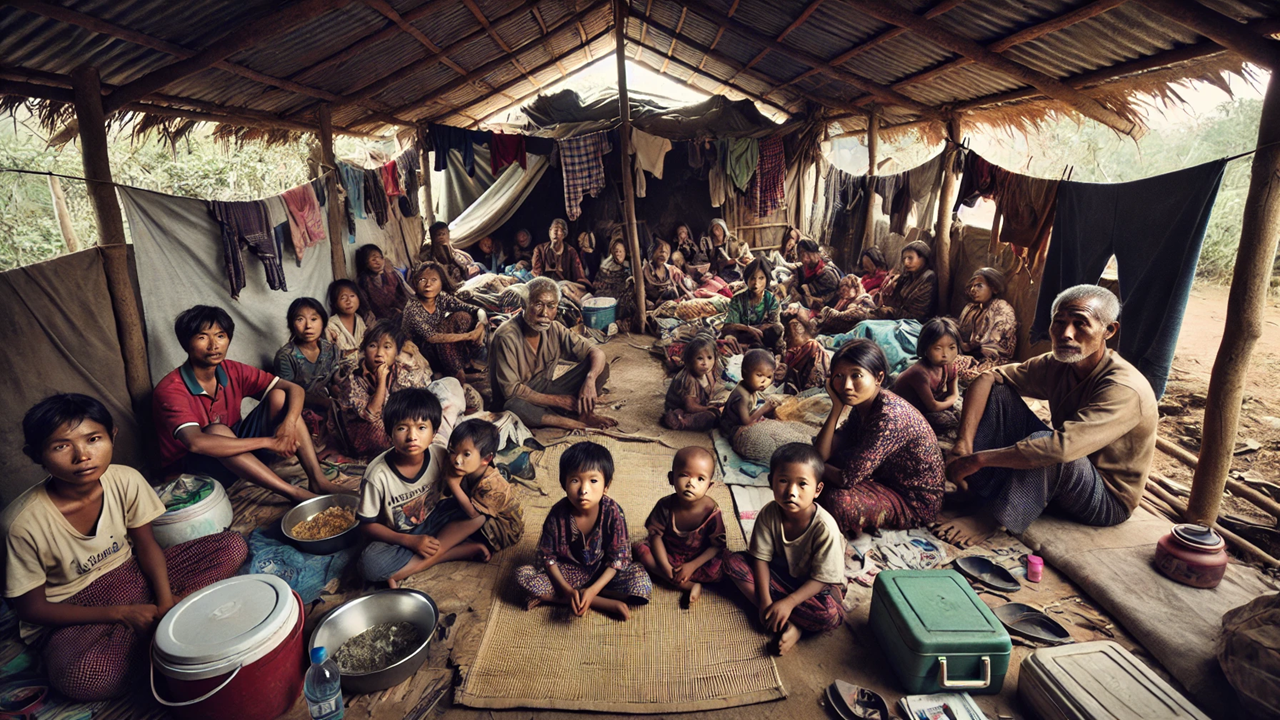The humanitarian crisis in Myanmar has reached a critical turning point, with escalating violence and climate-related disasters putting millions of children and families at grave risk. According to UNICEF, over 3.4 million people have been displaced within the country, nearly 40 percent of whom are children. The growing conflict, compounded by devastating climate shocks such as Typhoon Yagi, has severely disrupted essential services, pushing vulnerable communities to the brink of survival.
UNICEF’s Executive Director, Catherine Russell, recently visited conflict-affected areas in Myanmar and witnessed the devastating impact on children. "The suffering of children is heartbreaking," she said. "They are cut off from life-saving services, including healthcare and education, while also enduring the trauma of displacement and violence. The stories I heard from families were gut-wrenching—children living in fear, without access to basic needs, and exposed to the horrors of war."
One of the most tragic incidents occurred on November 15, when a strike hit a church compound in Kachin, killing seven children and two other civilians who were playing football. "I was devastated to hear about this senseless loss," said Russell. "It is a stark reminder of the urgent need for all parties involved in the conflict to respect international humanitarian law and protect children from such brutal attacks."
In 2024 alone, at least 650 children have been killed or maimed as a result of the ongoing violence. Additionally, children make up 32 percent of the over 1,000 civilian casualties caused by landmines and unexploded remnants of war. The indiscriminate use of deadly weapons, including airstrikes and landmines in civilian areas, has severely restricted safe spaces for children, leaving them exposed to violence, exploitation, and trauma.
"International humanitarian law must be upheld," Russell emphasized, urging all parties to guarantee safe, unhindered access to humanitarian aid for vulnerable children and families in conflict zones. "We must ensure the protection of civilian infrastructure, including schools and hospitals, and provide safe passage for those fleeing violence."
Despite the growing challenges, UNICEF and its humanitarian partners continue to work tirelessly to provide life-saving assistance in health, nutrition, and education to children in hard-to-reach and frontline areas. However, efforts are being hindered by severe funding shortages, with less than 25 percent of UNICEF's 2024 humanitarian appeal met. The growing needs of children and families are overwhelming existing resources, and UNICEF is calling on the international community to urgently step up its support.
"The cost of inaction is far too high," said Russell. "Myanmar’s children cannot afford to wait. We need funding, advocacy, and solidarity from the international community to prevent further suffering and ensure that these children have a chance at survival and a future."
UNICEF’s commitment to upholding the rights of children remains steadfast, and the organization continues to advocate for stronger international engagement to address the escalating crisis. The situation in Myanmar is dire, and it is crucial that the international community acts quickly to prevent further devastation and protect the lives of children and families caught in the crossfire of conflict and climate-related disasters.











